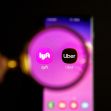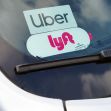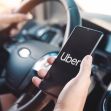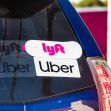When is an Uber driver on duty? The answer comes from a case involving an offline Uber driver, who dropped off a passenger and soon thereafter hit a pedestrian with his unoccupied vehicle.
MacKenzie Young Jay Kim, a pedestrian, was hit by Uber driver Ralph Wilson III in West Los Angeles in 2020. Wilson’s Uber was empty and he was “offline” while driving from one area to another, hoping to get a rider in a ‘high demand” area where the price of an Uber ride was higher. Kim sued both Wilson and Uber for negligence, but the trial court ruled that Wilson was “offline” when he hit Kim, and thus Uber was not vicariously liable for the accident.
When Kim sued Uber Technologies, Inc., the ride-share company filed a motion for summary judgment. Los Angeles Superior Court Judge Cherol Nellon granted the motion because Wilson told the court that he had “cut off my Uber,” gone to McDonald’s, and then set off for home when he hit Kim. This story, however, was “inconsistent with Uber’s records and was used by Kim to attack Wilson’s credibility.” Uber’s records affirmed that Wilson was not “online” at the time of the accident, did not have a passenger, and was not en route to pick up anyone.
At trial, Kim used Wilson’s inconsistencies to argue that Wilson was “operating his vehicle with the intention of switching back to ‘available’ status at the time of his collision with Plaintiff.” But Nellon found Kim’s arguments “speculative,” and his actions before the accident were irrelevant when determining whether he was “acting as an Uber driver” when he hit Kim. In addition, no evidence showed he was not finished driving for the night.
Thus, Uber argued it could not be vicariously because the undisputed facts confirmed Wilson was not on the Uber platform at the time of the accident. A material element of the vicarious liability argument was absent, and the court concluded that Kim could not establish that Wilson was acting “in the course and scope of his employment.”
Nellon granted Uber’s motion for summary judgment via a minute order, and Kim appealed to Division Eight of California’s Second District Court of Appeal, which affirmed the trial court decision on August 31. The appellate court ruling was certified for publication on September 20.
In a unanimous opinion authored by Justice Elizabeth A. Grimes, with concurrences by Presiding Justice Maria E. Stratton and Justice Victor Viramontes, Grimes explained that “offline” means that Wilson, the driver, was not available to receive requests for rides, thus he was acting in his “personal capacity” at the time of the accident. Wilson was not a party in the appeal.
The appellate court explained that Nellon had properly granted Uber’s motion for summary judgment because none of the submitted papers showed there was a triable issue of fact. Thus “Uber was entitled to a judgment as a matter of law.” Grimes reached this conclusion after disregarding Kim’s argument that Nellon granted Uber’s motion because of “public-policy perspectives as opposed to the existence of a triable issue of fact.” She wrote that Nellon’s grant of summary judgment was actually based on the fact that Wilson was not acting as an Uber driver when the accident took place.
There was simply too much evidence to support the contention that Wilson was not acting as an Uber driver when he hit Kim. Uber’s records, coupled with the company’s explanation that the driver “frequently toggled between being available and offline during his driving time, but this did not happen on the night of the accident. That night, he went offline only once, from 12:40:58 a.m. to 12:41:06 a.m. during his five-hour shift.
Kim also argued that it should have been up to a jury to determine whether Wilson was a credible witness. The appellate court reiterated that was irrelevant because there was ample proof from Uber’s records that he was “offline” when the collision occurred and therefore Wilson’s testimony was “not material to the issue” that led to granting Uber’s summary judgment motion. Grimes wrote, “…there is nothing here for a jury to decide; plaintiff’s claim of what Mr. Wilson ‘could have done” is complete speculation, and juries are not permitted to speculate.”
The plaintiff’s final argument—that Wilson could not have gone to McDonald’s, purchased food, and driven to the accident if the four or five minutes between the time he went offline and the time he had the accident was undisputed. “The rest is immaterial,” Grimes concluded adding, “The undisputed material facts show Mr. Wilson was not acting as an Uber driver at the time of the accident.”
Despite being denied access to Uber’s deep pockets, Kim will still be able to continue his suit against Wilson.






